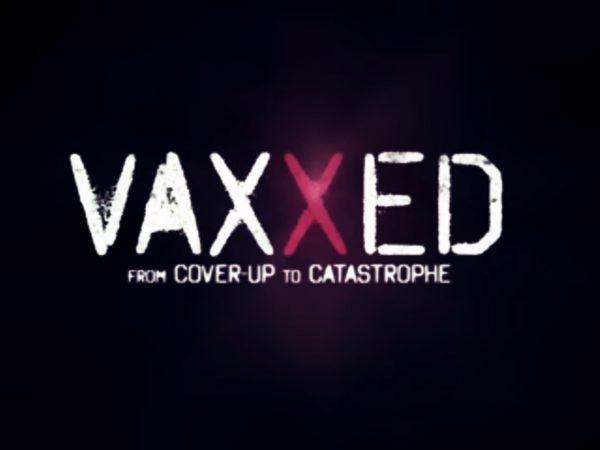
 When is giving exposure to an idea a problem?
When is giving exposure to an idea a problem?
This week, Tribeca Film Festival reversed its decision to premiere the anti-vaccination documentary “Vaxxed: From Cover-Up to Catastrophe”. The film is directed by former United Kingdom physician and mouthpiece for the discredited theory linking vaccination and autism, Andrew Wakefield, who long ago had his medical license revoked for fraud.
Reportedly, the documentary had been selected for screening by actor and Tribeca co-founder Robert De Niro, who with his wife Grace Hightower has a 19 year old son with autism. De Niro issued a statement last Friday in explanation of his desire to include the film, saying, “This is very personal to me and my family and I want there to be a discussion, which is why we will be screening Vaxxed. I am not personally endorsing the film, nor am I anti-vaccination; I am only providing the opportunity for a conversation around the issue.”
At the time, the Tribeca festival supported and echoed De Niro’s position, stating that like other film fests, Tribeca “is about dialogue and discussion” and that they “are a forum, not a judge.”
But the response was quick and coordinated.
The Guardian reported that within half an hour of De Niro’s posting, the Immunization Action Coalition (IAC), an umbrella group of prominent US scientists and immunization advocacy groups, was tapping into its listserv of supporters to rally the troops.
Today, we know that we have to respond to every incident however large or small, because if you leave any of these discredited theories unchallenged, it allows people to think that there’s something still to be discussed.
“Four or five years ago we weren’t as well organized and people didn’t realize the importance of responding quickly and strongly,” said Alison Singer, president of the Autism Science Foundation and IAC listserv member. “Today, we know that we have to respond to every incident however large or small, because if you leave any of these discredited theories unchallenged, it allows people to think that there’s something still to be discussed,” Singer said.
A day later, De Niro sent out his pull-back statement, saying that after consulting with the Tribeca team and “others from the scientific community” the scheduled viewing of Vaxxed would be cancelled. “We do not believe it contributes to or furthers the discussion I had hoped for,” said De Niro.
Tribeca’s turnaround was rightly and roundly praised as a victory for the good guys, a win for our children’s health, for sanity and, of course, for science. Singer’s reaction best captured the sentiment: “It’s wonderful that we are now seeing science triumph –to me that was the message of what has happened: science won.”
How strange, though, to say that in a battle between a film festival and science, science won.
Why should Tribeca or anybody’s film or art festival -documentaries are essentially art as story-telling- be bound by the dictates of science, especially since the latter is by no means a finished product? Forget for the moment the obvious political concerns over free speech, does it even make sense to say, “Oh, good, that painting just got its butt kicked by reason”?
Clearly, there are battles for science to fight -witness Wakefield’s own story: his 1998 Lancet article positing a link between vaccinations and autism was subsequently found to contain fraudulent claims, unreproducible findings and study biases and was (eventually) discredited and retracted by the journal. That’s a win for science.
While we don’t want our scientists telling us what films to watch, we nonetheless need to think carefully about what gets prime time exposure.
And it’s not wrongheaded or pollyanna-ish to believe that our labs, scientists and research journals will get it right, that we can rely on them to produce the straight goods about things like medicine and healthcare and that the truth will eventually come out as long as we let reason and the experimental method run their course. What is problematic is to think that getting it right is all that matters.
One reaction to the rise of Donald Trump has been to accuse reality TV and all things crass and trashy for opening the door to a Jersey Shore type of politics, one without substance, full of arrogance and spectacle. Is this fair?
Globe and Mail columnist John Doyle, for one, voices the no side: “Reality TV didn’t create Donald Trump. Nor did it create what should have been seen coming and is crystallized in Trump’s success. It simply put it on TV.”
But there’s no “simply” about it. Depending on the forum, exposure can mean legitimacy. The public realm has always been a messy, convoluted space, but the battles fought therein are anything but trifling. While we don’t want our scientists telling us what films to watch, we nonetheless need to think carefully about what gets prime time exposure.
Wakefield’s documentary, by the way, will get shown. It’s playing right now at an arthouse cinema in New York. And conspiracy hounds will seek it out. It’ll be on the fringes, though, where it belongs.
Leave a Reply
You must be logged in to post a comment.


 Share
Share Tweet
Tweet Share
Share




Comment